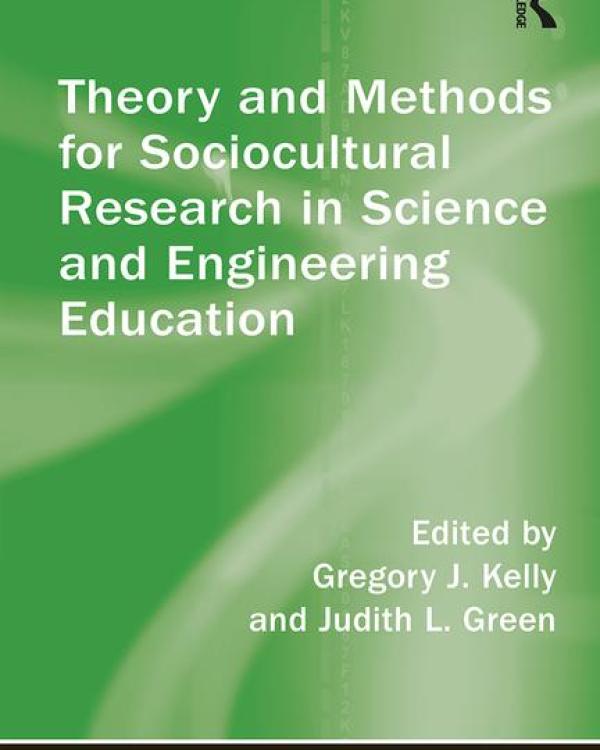
Dr. Judith Green, professor emerita of UC Santa Barbara’s Gevirtz School—along with Dr. Gregory J. Kelly, Senior Associate Dean for Research, Outreach, and Technology and Distinguished Professor of Education in the College of Education at Pennsylvania State University—has co-edited Theory and Methods for Sociocultural Research in Science and Engineering Education (Routledge, 2018).
Introducing original methods for integrating sociocultural and discourse studies into science and engineering education, this book provides a much-needed framework for how to conduct qualitative research in this field. The three dimensions of learning identified in the Next Generation Science Standards create a need for research methods that examine the sociocultural components of science education. With cutting-edge studies and examples consistent with the NGSS standards, this book offers comprehensive research methods for integrating discourse and sociocultural practices in science and engineering education and provides key tools for applying this framework for students, pre-service teachers, scholars, and researchers.
Theory and Methods for Sociocultural Research in Science and Engineering Education: Applies an original sociocultural perspective to science and engineering education, addressing obstacles to inclusion and understanding, such as language learning, racial and ethnic difference; Includes detailed, illustrative case studies as concrete examples of sociocultural approaches to science and engineering education; and, Provides new tools and research methods for analyzing discourse and social practice in the science and engineering education classroom while being up-to-date with NGSS standards.
Judith Green earned her B.A. in History with a minor in speech in 1963, during an interesting and tumultuous time at Berkeley, the center of the Free Speech Movement. She also earned her California K-12 Life Credential at Berkeley with certification as a Miller-Unruh Reading Specialist. After pursuing a specialty in Language and Linguistics at Columbia and an M.A. in Educational Psychology at Cal State Northridge, Judith returned to Berkeley and completed her Ph.D. in 1977.
She has taught for more than five decades across levels K-20 education. She is a Professor Emerita in the Department of Education and co-director of the Center for Education Research on Literacy & Inquiry in Networking Communities (LINC) at UC Santa Barbara. Her research has focused on teaching-learning relationships, disciplinary knowledge as socially constructed, and ethnographic research and discourse studies of the patterns of everyday life in classrooms. As a founding member of the Santa Barbara Classroom Discourse Group, a collaborative community of teacher ethnographers, student ethnographers and university-based ethnographers, Green explores questions guided by theories on the social construction of knowledge, with a goal to identify principles of practices that teachers (and others) may use to support equity of access for all students.
Although Kelly is currently at Penn State, he and Green were colleagues when he was a professor in the Department of Education at UCSB from 1994-2004.